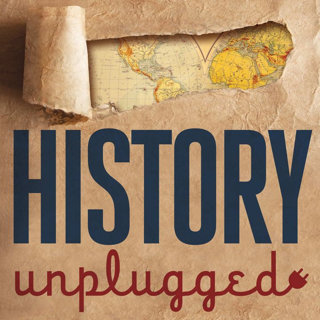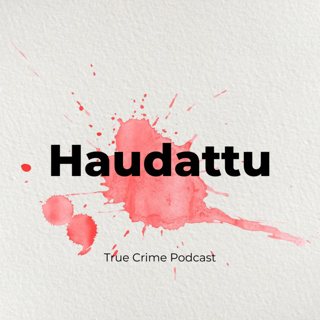
The Mongol Storm: Making and Breaking Empires in the Medieval Near East
The most disruptive and transformative event in the Middle Ages wasn’t the Crusades, the Battle of Agincourt, or even the Black Death. It was the Mongol Conquests. Even after his death, Genghis Khan’s Mongol Empire grew to become the largest in history—four times the size of Alexander the Great’s and stretching from the Pacific to the Mediterranean. But the extent to which these conquering invasions and subsequent Mongol rule transformed the diverse landscape of the medieval Near East have been understated in our understanding of the modern world.Today’s guest is Nicholas Morton, author of “The Mongol Storm: Making and Breaking Empires in the Middle East.” We discuss the overlapping connections of religion, architecture, trade, philosophy and ideas that reformed over a century of Mongol rule. Rather than a Euro- or even Mongol-centric perspective, this history uniquely examines the Mongol invasions from the multiple perspectives of the network of peoples of the Near East and travelers from all directions—including famous figures of this era such as Marco Polo, Ibn Battuta, Ibn Khaldun, and Roger Bacon, who observed and reported on the changing region to their respective cultures—and the impacted peoples of empires—Byzantine, Seljuk and then Ottoman Turks, Ayyubid, Armenian, and more—under the violence of conquest.See omnystudio.com/listener for privacy information.
31 Tammi 202342min

Weather Itself Was WW2's Fiercest Enemy: The Sinking of the USS Macaw
On January 16, 1944, the submarine rescue vessel USS Macaw ran aground at Midway Atoll while attempting to tow the stranded submarine USS Flier. The Flier was pulled free six days later but another three weeks of salvage efforts plagued by rough seas and equipment failures failed to dislodge the Macaw. On February 12, enormous waves nudged the ship backward into deeper water. As night fell and the Macaw slowly sank, the twenty-two sailors on board—ship's captain Paul W. Burton, his executive officer, and twenty enlisted men—sought refuge in the pilothouse but by the following afternoon, the compartment was almost entirely flooded. Burton gave the order to open the portside door and make for the foremast. Three men succeeded but most of the others were swept overboard. Five of them died, including Burton. Three sailors from the base at Midway also lost their lives in two unauthorized rescue attempts.Today’s guest is Tim Loughman, author of A Strange Whim of the Sea: The Wreck of the USS Macaw. He traces the ship's service from its launch on San Francisco Bay to its disastrous final days at Midway. It tells a war story short on combat but not on drama, a wartime tragedy in which the conflict is more interpersonal, and perhaps intrapersonal, than international. Ultimately, for Burton and the Macaw the real enemy was the sea, and in a deadly denouement, the sea won. Highlighting the underreported role auxiliary vessels played in the war, A Strange Whim of the Sea engages naval historians and students alike with a previously untold story of struggle, sacrifice, death, and survival in the World War II Pacific.See omnystudio.com/listener for privacy information.
26 Tammi 202334min

A Short History of War
Some anthropologists once believed that humanity lived in a peaceful state that lacked large-scale warfare before the arrival of large civilizations and all its wealth inequality and manufacture of weapons. But archeological findings have shown over and over that warfare dates back as far as homo sapiens themselves (such as the Bronze Age Battle of Tollense River, about which we known nearly nothing, save that 5,000 soldiers fought each other with primitive weapons).Throughout history, warfare has transformed social, political, cultural, and religious aspects of our lives. We tell tales of wars—past, present, and future—to create and reinforce a common purpose. Today’s guest is Jeremy Black, author of “A Short History of War.” We examine war as a global phenomenon, looking at the First and Second World Wars as well as those ranging from Han China and Assyria, Imperial Rome, and Napoleonic France to Vietnam and Afghanistan. Black explores too the significance of warfare more broadly and the ways in which cultural understandings of conflict have lasting consequences in societies across the world.See omnystudio.com/listener for privacy information.
24 Tammi 202350min

Stories From 300 British Men Executed For Cowardice During WW1
Over 300 men were executed by the British Army for desertion and cowardice during the first World War. In this episode preview from Vlogging Through History, host Chris Mowery explores the process for executions and the stories of the men involved.To continue listening to Vlogging Through History, check out: Apple Podcasts: https://apple.co/3X3USwk Spotify: https://spoti.fi/3WX5A7EParthenon: https://www.parthenonpodcast.com/vlogging-through-history Discover more episodes of Vlogging Through History: The History of the Medal of Honor: https://apple.co/3iqhU17 / https://spoti.fi/3vLt9V7The Tragic Lives of U.S. Presidents: https://apple.co/3Xa63Dm / https://spoti.fi/3VYHTdUAlvin York: An American Legend: https://apple.co/3GTHRjf / https://spoti.fi/3QpT3HcSee omnystudio.com/listener for privacy information.
19 Tammi 202313min

The 1911 McNamara Bros. Murder Trial was the OJ Simpson/Johnny Depp v. Amber Heard Case of Its Time
Considered by many to be one of the best-known criminal defense lawyers in the country, Clarence Darrow became nationally recognized for his eloquence, withering cross-examinations, and compassionate support for the underdog, both in and out of the courtroom.Though his fifty-year-long career was replete with momentous cases, specifically his work in the Scopes Monkey Trial and the Leopold and Loeb Murder Trial, Darrow’s Nightmare zeroes in on just two years of Darrow’s career: 1911 to 1913. It was during this time period that Darrow was hired to represent the McNamara brothers, two union workers accused of bombing the Los Angeles Times building, an incident that resulted in twenty-one deaths and hundreds more injuries.Along with investigative journalist Lincoln Steffens, Darrow negotiated an ambitious plea bargain on behalf of the McNamara brothers. But the plan soon unraveled; not long after the plea bargain was finalized, Darrow was accused of attempting to bribe a juror. As Darrow himself became the defendant, what was once his shining moment in the national spotlight became a threat to the future of his career and the safety of his family.Today’s guest is Nelson Johnson, author of Darrow's Nightmare: The Forgotten Story of America's Most Famous Trial Lawyer: (Los Angeles 1911–1913). Drawing upon the 8,500-page transcript saved from the two trials, Johnson makes Darrow’s story come to life like never before.See omnystudio.com/listener for privacy information.
19 Tammi 202334min

Daniel Webster -- Perhaps History’s Greatest Orator -- Turned Virginians and New Yorkers Into Americans
When the United States was founded in 1776, its citizens didn’t think of themselves as “Americans.” They were New Yorkers or Virginians or Pennsylvanians. It was decades later that the seeds of American nationalism—identifying with one’s own nation and supporting its broader interests—began to take root. But what kind of nationalism should Americans embrace? The state-focused and racist nationalism of Thomas Jefferson and Andrew Jackson? Or the belief that the U.S. Constitution made all Americans one nation, indivisible, which Daniel Webster and others espoused? Today’s guest is Joel Richard Paul, author of Indivisible: Daniel Webster and the Birth of American Nationalism. We look at the story of how Webster, a young New Hampshire attorney turned politician, rose to national prominence through his powerful oratory and unwavering belief in the United States and captured the national imagination. In his speeches, on the floors of the House and Senate, in court, and as Secretary of State, Webster argued that the Constitution was not a compact made by states but an expression of the will of all Americans. As the greatest orator of his age, Webster saw his speeches and writings published widely, and his stirring rhetoric convinced Americans to see themselves differently, as a nation bound together by a government of laws, not parochial interests. As these ideas took root, they influenced future leaders, among them Abraham Lincoln, who drew on them to hold the nation together during the Civil War.See omnystudio.com/listener for privacy information.
17 Tammi 202337min

How Ottoman Sultan Suleyman Conquered Most of Europe and the Mediterranean While Avoiding Assassination
Within a decade and a half, Ottoman Sultan Suleyman, who reigned form 1520 to 1566, held dominion over twenty-five million souls, from Baghdad to the walls of Vienna, and with the help of his brilliant pirate commander Barbarossa placed more Christians than ever before or since under Muslim rule. He launched voyages into the Indian Ocean, threatened to conquer all of Europe, and took firm control over the Mediterranean Sea. And yet the real drama takes place in close-up: in small rooms and whispered conversations, behind the curtain of power. His confidantes include the Greek slave who becomes his Grand Vizier, the Venetian jewel dealer who acts as his go-between, and the Russian consort who becomes his most beloved wife.Today’s guest Christopher de Bellaigue, author of The Lion House. He tells not just the story of rival superpowers in an existential duel, nor of one of the most consequential lives in human history, but of what it means to live in a time when a few men get to decide the fate of the world.See omnystudio.com/listener for privacy information.
12 Tammi 202344min

Yoga Came to America via an Indian Monk at the 1893 Worlds Fair
If you are one of the 40 million people in the United States who practice yoga, or if you have ever meditated, you have a forgotten Indian monk named Swami Vivekananda to thank. Few thinkers have had so enduring an impact on both Eastern and Western life as him, the Indian monk who inspired the likes of Freud, Gandhi, and Tagore. Blending science, religion, and politics, Vivekananda introduced Westerners to yoga and the universalist school of Hinduism called Vedanta. His teachings fostered a more tolerant form of mainstream spirituality in Europe and North America and forever changed the Western relationship to meditation and spirituality.Today’s guest is Ruth Harris, author of Guru to the World: The Life and Legacy of Vivekananda. She traces his transformation from son of a Calcutta-based attorney into saffron-robed ascetic. At the 1893 World Parliament of Religions in Chicago, he fascinated audiences with teachings from Hinduism, Western esoteric spirituality, physics, and the sciences of the mind, in the process advocating a more inclusive conception of religion and expounding the evils of colonialism. Vivekananda won many disciples, most prominently the Irish activist Margaret Noble, who disseminated his ideas in the face of much disdain for the wisdom of a “subject race.” At home, he challenged the notion that religion was antithetical to nationalist goals, arguing that Hinduism was intimately connected with Indian identity.The iconic monk emerges as a counterargument to Orientalist critiques, which interpret East–West interactions as primarily instances of Western borrowing. As Vivekananda demonstrates, we must not underestimate Eastern agency in the global circulation of ideas.See omnystudio.com/listener for privacy information.
10 Tammi 202345min






















